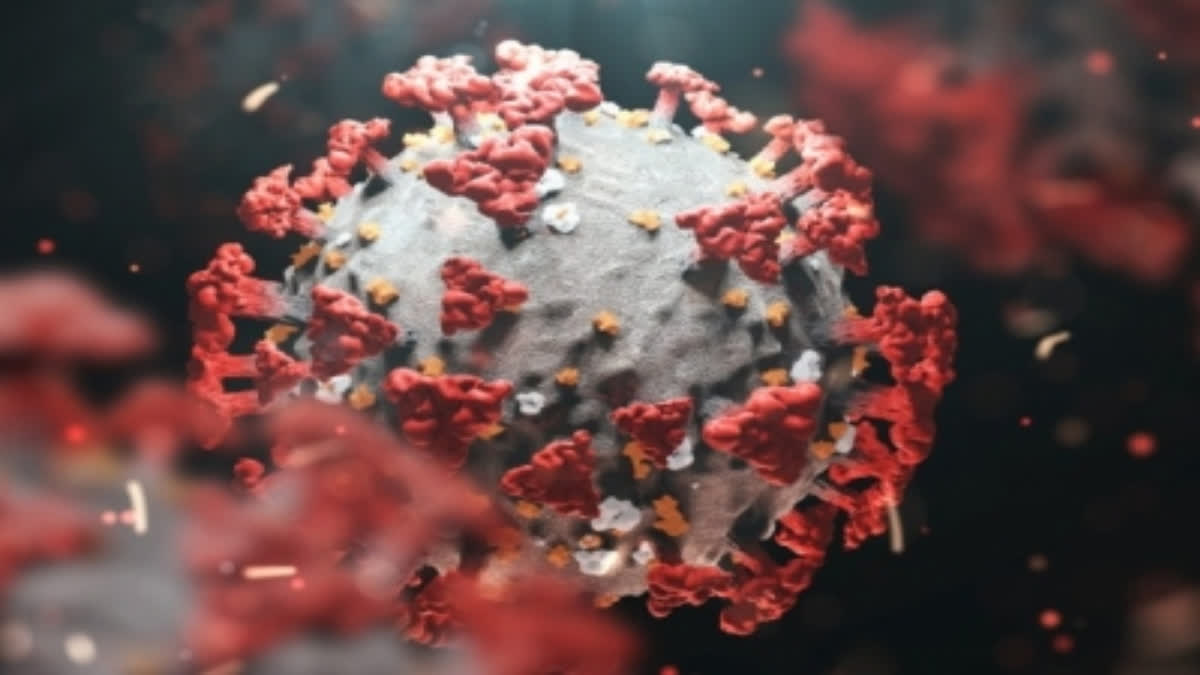New York: The Omicron variants of the Covid-19 virus, which have rapidly spread around the world over the past year, latch onto our cells more tightly, invade them more efficiently, according to a new study.
The first Omicron variant, designated BA.1 has been followed by a series of variants, each with mutations that increased their ability to infect and spread. These include variants designated BA.2, BA.4, BA.5, BQ.1.1, XBB and its derivatives XBB.1 and XBB.1.5 and the newly detected BA.2.86.
“The Omicron variants that have become dominant over the past year, such as BQ.11 and XBB.1.5, have high affinity for the receptor on host cells, angiotensin-converting enzyme 2, and they are able to fuse with the cell membrane and invade much more efficiently than previous SARS-CoV-2 Omicron variants,” said David Veesler, Professor of biochemistry at the University of Washington’s School of Medicine.
They have also been able to reinfect people who had been infected by earlier variants and break through the immune protection of vaccines designed to protect against the earlier variants. These reinfections and breakthrough infections are possible because the new variants can evade antibodies induced by exposure to the earlier variants, Veesler reported in the journal Nature.
However, the researchers also found that previous infection or vaccination did help to generate antibodies that recognised some of the proteins found on newer variants, and reduced the risk of serious illness, hospitalisation, and death with reinfection by a newer variant. Although the neutralising activity of most antibodies generated against earlier variants was much reduced, the effectiveness of one antibody, called S309, was retained, Veesler said.
Also read: Health experts caution against new Covid-19 variant Pirola having more transmissibility
This antibody targets a region on the virus’ spike protein that tends to remain relatively unchanged from variant to variant, presumably because its role is essential for the virus to function.
“S309 still recognises all these variants and neutralises them (albeit less efficiently), promotes the cellular response, and protects against disease in animal studies,” Veesler said. It is because the immune system tends to react by producing antibodies induced by previous variants and cross-reacting with newer variants instead of producing new bespoke antibodies tailored to target the altered proteins on the new variants.
Veesler suspects this is due to a phenomenon called immune imprinting in which the immune response to a new infection by a similar virus is heavily influenced by the immune system’s earlier response. This immune imprinting leads it to concentrate on what it knows instead of learning new tricks to tackle the mutations found in the new variant.
"This phenomenon is one reason why vaccines against new variants should not contain components from older variants that might favour immune imprinting and lead to a less effective immune response", Veesler said. (IANS)
Also read: 17% Covid patients still suffer health issues, 6.5% lost lives after 1 year: ICMR



